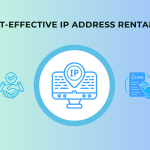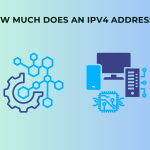Introduction: The Growing Need for IP Leasing
In today’s digital-first world, businesses require reliable IP addresses to power networks, websites, and online services. However, IPv4 exhaustion and the slow transition to IPv6 have made purchasing IPs expensive and complex. IP leasing offers a flexible, cost-effective alternative, allowing businesses to rent IPs without ownership burdens.
From startups to enterprises, leasing IPs enables rapid scaling, cost savings, and instant deployment. But with multiple leasing types available, how do you choose the right one? Let’s break down the options.
Why Businesses Should Lease IP Addresses
Before exploring leasing types, here’s why businesses opt for IP leasing:
1. Cost Efficiency – Avoid high upfront costs of buying IPv4/IPv6 blocks.
2. Instant Scalability – Scale IP resources up or down based on demand.
3. Faster Deployment – Get IPs immediately without lengthy transfer processes.
4. Reduced Maintenance – Providers handle compliance, reputation, and management.
For businesses seeking affordable, flexible IP solutions, leasing is the ideal choice.
Types of IP Leasing: Finding the Best Fit
1. Short-Term vs. Long-Term IP Leasing
-
Short-Term Leasing – Best for temporary needs like:
-
Testing environments
-
Marketing campaigns
-
Seasonal projects
-
-
Long-Term Leasing – Ideal for:
-
Expanding infrastructure
-
Sustained business growth
-
Permanent online services
-
2. IPv4 vs. IPv6 Leasing
-
IPv4 Leasing – High demand due to IPv4 exhaustion; cost-effective alternative to buying.
-
IPv6 Leasing – Future-proof solution, though compatibility with legacy systems may be needed.
3. Dedicated vs. Shared IP Leasing
-
Dedicated IP Leasing – Exclusive IPs for enhanced security & control. Best for:
-
E-commerce sites
-
Financial services
-
Secure remote access
-
-
Shared IP Leasing – Budget-friendly, multiple users share IPs. Suitable for:
-
Small businesses
-
Low-budget projects
-
4. Dynamic vs. Static IP Leasing
-
Dynamic IP Leasing – IPs change periodically. Used by:
-
ISPs
-
Businesses needing rotating IPs for security
-
-
Static IP Leasing – Fixed IPs for stability. Essential for:
-
Web hosting
-
VoIP services
-
Secure remote connections
-
How to Choose the Right IP Leasing Option
Consider these factors when selecting an IP lease:
Duration – Short-term for projects, long-term for infrastructure.
Budget – Shared/dynamic IPs are cheaper; dedicated/static IPs offer more control.
Security Needs – Dedicated/static IPs enhance security.
Scalability – Dynamic IPs allow flexible scaling.
Whether you need temporary IPs for testing or a long-term solution for growth, leasing provides the flexibility your business needs.
Conclusion: IP Leasing – The Smart, Scalable Solution
IP leasing is transforming how businesses access IP resources—saving costs, improving flexibility, and simplifying management. From dynamic vs. static IPs to IPv4 vs. IPv6 leasing, the right solution depends on your business needs.
Ready to optimize your IP strategy? Explore trusted IPv4 address leasing services and find the perfect lease for your business growth.






